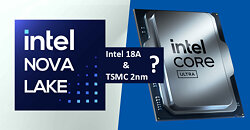
Lexar Unveils New ES5 Magnetic Portable SSD for Creators On-the-Go
Lexar, a leading global brand of flash memory solutions, unveiled the revolutionary Lexar ES5 Magnetic Portable SSD, designed for mobile content creators, videographers, and photographers who demand high-performance storage on the go. The ES5 Magnetic Portable SSD offers read and write speeds of up to 2000 MB/s for quick file transfers and a smooth workflow. With built-in MagSafe compatibility, it easily attaches to iPhone 15 Pro/Pro Max, iPhone 16 Pro/Max, and Samsung S25. It supports Apple ProRes recording at 4K 60/120 FPS and Samsung Pro Video at 8K 30 FPS, allowing creators to bypass internal storage limitations for uninterrupted, high-quality recording directly to the drive.
Moreover, the Lexar App, compatible with all Lexar portable SSDs and works with both iOS and Android devices, makes it easy to extend phone storage with automatic photo and video backups. With an IP65 rating, this drive is dust- and water-resistant and tested to survive drops from up to 3 meters. Its durable silicone design includes a cable organizer that doubles as a lanyard. It seamlessly attaches to your MacBook using the Magnetic Attraction Plate and is compatible with a wide range of devices—laptops, smartphones, tablets, cameras, and game consoles—making it an excellent complement to any digital setup.
Moreover, the Lexar App, compatible with all Lexar portable SSDs and works with both iOS and Android devices, makes it easy to extend phone storage with automatic photo and video backups. With an IP65 rating, this drive is dust- and water-resistant and tested to survive drops from up to 3 meters. Its durable silicone design includes a cable organizer that doubles as a lanyard. It seamlessly attaches to your MacBook using the Magnetic Attraction Plate and is compatible with a wide range of devices—laptops, smartphones, tablets, cameras, and game consoles—making it an excellent complement to any digital setup.



























































